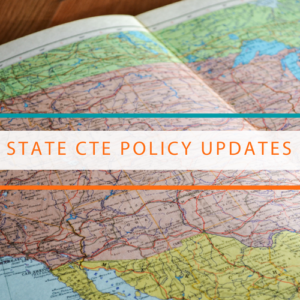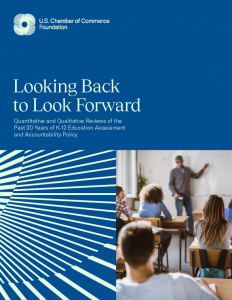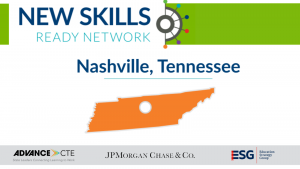This week, leaders in the House struggled to make progress on time-sensitive funding legislation for the federal government while the U.S. Department of Education (ED) has announced it is delaying an upcoming deadline for new regulations impacting postsecondary institutions. Elsewhere new legislation related to learner mental health has been introduced in the House, while a new nominee has been announced to lead ED’s research and evaluation efforts as the agency shares new resources to support civil rights implementation.
House Continuing Resolution Vote Fails
 This week, House Speaker Mike Johnson (R-LA) pressed ahead with a vote on a six-month extension of current federal funding through the early part of 2025. The measure, known as a continuing resolution (CR), has been strongly opposed by congressional Democrats and the White House. This opposition has centered on the inclusion of additional controversial provisions related to elections and a preference for a shorter-term CR lasting through December of this year. Despite this opposition, the CR was brought up for a vote on Wednesday, and lawmakers rejected the legislation with a narrow 220-202 margin. All House Democrats and 14 Republicans opposed the measure.
This week, House Speaker Mike Johnson (R-LA) pressed ahead with a vote on a six-month extension of current federal funding through the early part of 2025. The measure, known as a continuing resolution (CR), has been strongly opposed by congressional Democrats and the White House. This opposition has centered on the inclusion of additional controversial provisions related to elections and a preference for a shorter-term CR lasting through December of this year. Despite this opposition, the CR was brought up for a vote on Wednesday, and lawmakers rejected the legislation with a narrow 220-202 margin. All House Democrats and 14 Republicans opposed the measure.
With the upcoming 2025 federal fiscal year (FY25) set to begin on October 1 in just a few short weeks, lawmakers must now determine a new path forward on funding for the federal government, including the Carl D. Perkins Career and Technical Education (CTE) Act (Perkins V), before this fast-approaching deadline. Most recently, House leaders have indicated their intent to release a new CR proposal early next week. As these efforts and more continue to get underway, Advance CTE will be working to advocate for a strengthened investment in CTE made possible by Perkins V’s state grant program.
Gainful Employment Reporting Pushed Further Back
Late last week, the U.S. Department of Education (ED) announced that it was further delaying reporting deadlines for recently finalized postsecondary rules related to Gainful Employment (GE) and Financial Value Transparency (FVT). Previously reporting requirements, which had been delayed earlier this summer, were set to come into effect on October 1, 2024. Postsecondary institutions impacted by GE and FVT will now be required to begin related reporting for these rules by January 15, 2025. Read more about the announcement here.
Bipartisan CTE Student Mental Health and Wellness Act Introduced
This week, Rep. Nick Langworthy (R-NY) and the co-chairs of the CTE Caucus, Reps. GT Thompson (R-PA) and Suzanne Bonamici (D-OR) introduced the CTE Student Mental Health and Wellness Act. Coinciding with National Suicide Prevention Month, this legislation expands the campus suicide prevention program to include area technical centers within this existing grant program. “This legislation would ensure that Area Career and Technical Centers are included as a covered institution under the Campus Suicide Prevention program–a critical recognition that learners’ mental health and wellbeing must be prioritized throughout our nation’s postsecondary system, including at institutions specializing in CTE,” said Advance CTE Executive Director Kate Kreamer. Read the press release for the legislation here.
ED Shares New Title IX Resources
In recent weeks, the U.S. Department of Education (ED) shared two new resources to assist schools in complying with recent changes that went into effect on August 1 regarding the implementation of Title IX—civil rights legislation intended to prevent discrimination in educational settings on the basis of one’s gender. These new resources clarify Title IX coordinators’ duties, a position requiring each recipient of funds to employ, and regulations related to nondiscrimination based on pregnancy, related conditions, parental, family, or marital status. As Advance CTE previously shared, more than half of states’ Attorneys General have sued to block these new changes, resulting in a widespread difference in whether and how these new rules are currently being implemented in certain states. These new resources can be accessed here.
Institute of Education Services Director Nominated
Late last week, President Biden announced that he was nominating Adam Gamoran to serve as the new Director of the Institute of Education Services (IES)—the U.S. Department of Education’s primary research and evaluation office. Gamoran previously served as the President of the William T. Grant Foundation, a philanthropic organization focused on funding research in the social sciences. The role of IES Director must be confirmed by the Senate—a position that until recently was held by Mark Schneider who left ED earlier this spring. IES also serves critical functions in the implementation of the Education Sciences Reform Act (ESRA), legislation that Advance CTE has previously engaged on, this Congress.
Rob Young, Communications & Advocacy Associate
Steve Voytek, Policy Advisor


 In the aftermath of the coronavirus pandemic, the strains on the healthcare system continue to be felt, with
In the aftermath of the coronavirus pandemic, the strains on the healthcare system continue to be felt, with Florida
Florida  In Washington,
In Washington,  Wisconsin
Wisconsin  To see more policy trends and access our policy tracker, check out our
To see more policy trends and access our policy tracker, check out our  As the new year unfolds, 38 governors across the nation have delivered their much-anticipated
As the new year unfolds, 38 governors across the nation have delivered their much-anticipated  For further insights and resources connected to workforce development, check out our Learning that Works Resource Center.
For further insights and resources connected to workforce development, check out our Learning that Works Resource Center. I completed my undergraduate degree in political science from the University of Nevada, Las Vegas and participated in a public policy minor program in collaboration with the Washington, DC-based Brookings Institution. Through the program, I worked on policy advocacy and research relevant to the Mountain West region at my university’s think-tank, specifically in education policy. After interning at the Brown Center on Education Policy, I was confident that educational research and its impact on learner outcomes was the space I wanted to be in for years to come.
I completed my undergraduate degree in political science from the University of Nevada, Las Vegas and participated in a public policy minor program in collaboration with the Washington, DC-based Brookings Institution. Through the program, I worked on policy advocacy and research relevant to the Mountain West region at my university’s think-tank, specifically in education policy. After interning at the Brown Center on Education Policy, I was confident that educational research and its impact on learner outcomes was the space I wanted to be in for years to come.  Earlier this year, the U.S. Chamber of Commerce Foundation hosted a webinar to release their new report,
Earlier this year, the U.S. Chamber of Commerce Foundation hosted a webinar to release their new report,  The Nashville, Tennessee site of the
The Nashville, Tennessee site of the